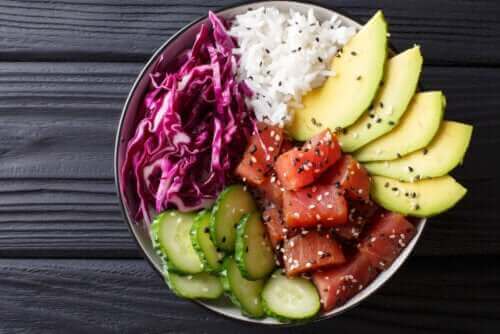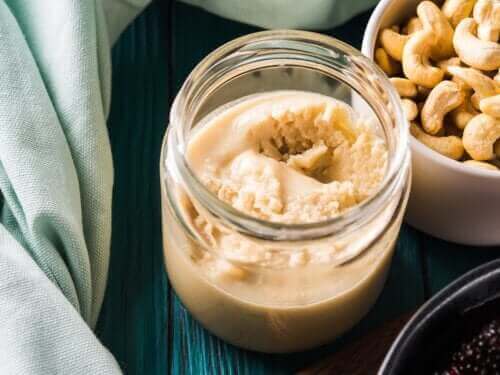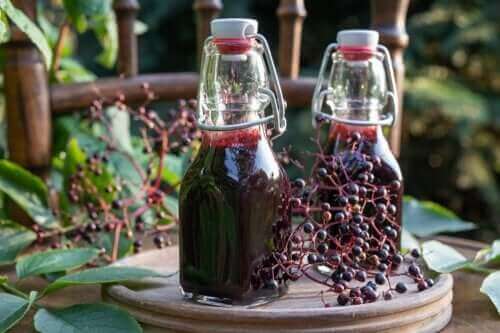6種最佳排毒水果

是時候來對付那些在假期時在體內產生的毒素所帶來的影響了。首先,有很多排毒的方法已經存在很多年了,你可以用健康的水果來幫助身體排毒。
當你的身體晝夜不停地處理你所攝入的食物、糖分和酒精時,你就需要更多的營養來減少這個過程對你身體造成的負擔。
好在,你不需要通過嚴格的計畫或昂貴的補品來解決這個問題。
雖然你假期的飲食可能並不完美,但你可以多吃一些健康的水果,以促進身體的自然排毒。
你想要了解更多嗎?快來看看前六大水果是哪些。
1. 檸檬
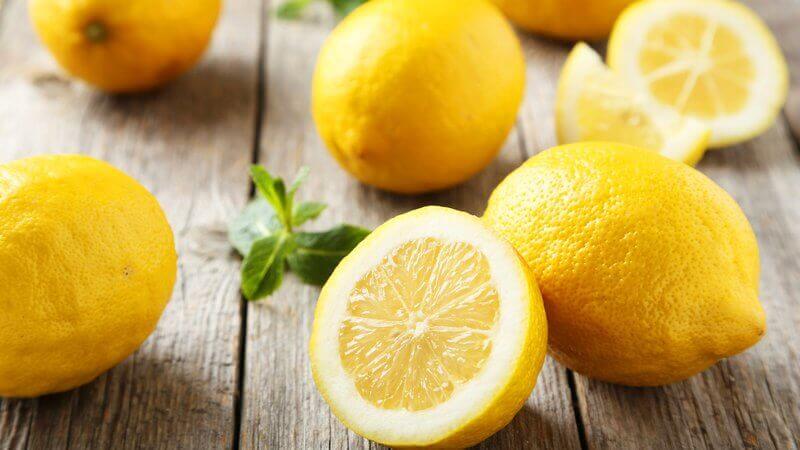
檸檬是最能排毒的水果之一,而且,它還能改善你的消化和腎臟健康。
- 檸檬的高維生素C含量有助於增強身體的自然防禦力,尤其是在飲酒之後。
- 檸檬有輕微的碱性作用,可以減少因食用過多食物而引起的酸度。
- 檸檬的抗氧化劑能保護你的組織不受毒素的傷害,並幫助消化脂肪。
2. 芭樂
吃芭樂或喝芭樂汁可以刺激你的肝臟和腎臟功能,幫助消除它們所存留的任何廢物。
- 芭樂比其他水果含有更多的維生素C,因此,它對免疫系統非常有益。
- 芭樂有大量的膳食纖維,能改善你的消化和促進健康的腸道運動。
- 芭樂能減少胃酸的過多分泌,有助於減輕消化不良的症狀。
- 芭樂也是對抗宿醉的好水果,因為它可以增加你的能量,促進毒素的新陳代謝。
3. 葡萄柚
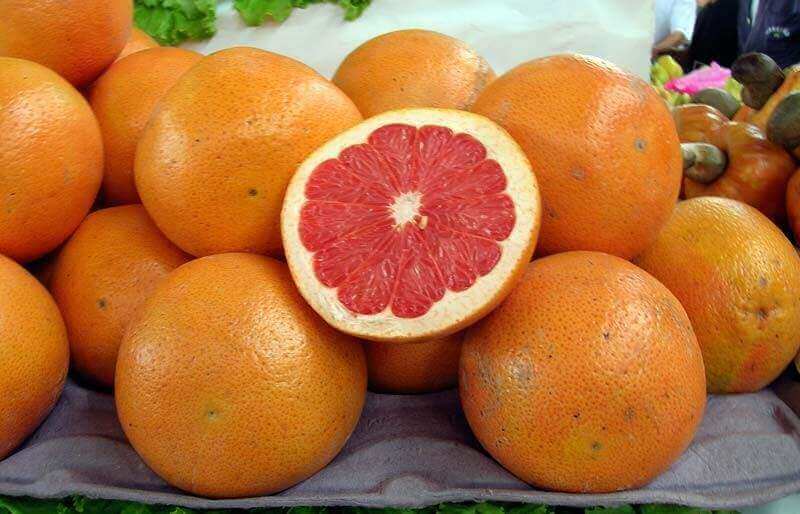
葡萄柚因其利尿、抗氧化和抗炎的特性而聞名。它是一種低熱量的食物,有益於減肥,因此它流行了一段時間。
許多人都不知道的是,葡萄柚也是最能淨化血液的食物之一。
- 葡萄柚含有抗氧化劑,可以改善你的腎功能,通過排尿排出毒素。
- 它們還可以保護你的細胞免受氧化的壓力,防止身體炎症過程的不平衡。
- 葡萄柚輕微的纖維含量可以改善你的消化能力,避免因暴飲暴食而產生的不適。
4. 瓜類
大多數瓜都是由水組成的,這些水以及它們所含的抗氧化劑,讓瓜有助於清潔我們的身體和幫助消化。
- 瓜類的利尿作用能消水腫,通過尿液排出廢物。
- 瓜類含有複合維生素B,維生素B是恢復身體的必須品。
- 瓜類的維生素和礦物質可以對抗因飲酒而導致的營養流失。
- 可以促進消化,酸的過量生產也會被減少。
5. 青蘋果
每天吃一顆蘋果,就能自然地幫助身體排毒。
- 青蘋果是抗氧化劑和基本礦物質的重要來源,能改善你的肝臟、腎臟和結腸的功能,能幫助身體排毒。
- 青蘋果含有大量的膳食纖維,尤其是它的果皮,有助於促進消化。
- 青蘋果中的有機酸可以調節胃的pH值,防止胃灼熱等不適。
6. 李子
過量的食物攝入和酒精會對你的消化系統產生負面影響。
梅子含有豐富的膳食纖維,可以刺激你的腸道,在清除廢物時能避免任何阻塞。
- 抗氧化劑保護你的細胞不受食物和酒精毒素的負面影響。
- 它們有益於你腸道中的細菌群,可以改善你的免疫系統。
- 梅子也有輕微的抗炎作用,可以對抗腹部腫脹。
- 它還能給你的身體帶來能量。
你是否有把這些食物添加到你的假期飲食計畫中?如果你還沒有這麼做的話,快來試試加入它們以享受它們給你帶來的好處吧!
同時,務必不要過量食用,還有要多喝水!
是時候來對付那些在假期時在體內產生的毒素所帶來的影響了。首先,有很多排毒的方法已經存在很多年了,你可以用健康的水果來幫助身體排毒。
當你的身體晝夜不停地處理你所攝入的食物、糖分和酒精時,你就需要更多的營養來減少這個過程對你身體造成的負擔。
好在,你不需要通過嚴格的計畫或昂貴的補品來解決這個問題。
雖然你假期的飲食可能並不完美,但你可以多吃一些健康的水果,以促進身體的自然排毒。
你想要了解更多嗎?快來看看前六大水果是哪些。
1. 檸檬

檸檬是最能排毒的水果之一,而且,它還能改善你的消化和腎臟健康。
- 檸檬的高維生素C含量有助於增強身體的自然防禦力,尤其是在飲酒之後。
- 檸檬有輕微的碱性作用,可以減少因食用過多食物而引起的酸度。
- 檸檬的抗氧化劑能保護你的組織不受毒素的傷害,並幫助消化脂肪。
2. 芭樂
吃芭樂或喝芭樂汁可以刺激你的肝臟和腎臟功能,幫助消除它們所存留的任何廢物。
- 芭樂比其他水果含有更多的維生素C,因此,它對免疫系統非常有益。
- 芭樂有大量的膳食纖維,能改善你的消化和促進健康的腸道運動。
- 芭樂能減少胃酸的過多分泌,有助於減輕消化不良的症狀。
- 芭樂也是對抗宿醉的好水果,因為它可以增加你的能量,促進毒素的新陳代謝。
3. 葡萄柚

葡萄柚因其利尿、抗氧化和抗炎的特性而聞名。它是一種低熱量的食物,有益於減肥,因此它流行了一段時間。
許多人都不知道的是,葡萄柚也是最能淨化血液的食物之一。
- 葡萄柚含有抗氧化劑,可以改善你的腎功能,通過排尿排出毒素。
- 它們還可以保護你的細胞免受氧化的壓力,防止身體炎症過程的不平衡。
- 葡萄柚輕微的纖維含量可以改善你的消化能力,避免因暴飲暴食而產生的不適。
4. 瓜類
大多數瓜都是由水組成的,這些水以及它們所含的抗氧化劑,讓瓜有助於清潔我們的身體和幫助消化。
- 瓜類的利尿作用能消水腫,通過尿液排出廢物。
- 瓜類含有複合維生素B,維生素B是恢復身體的必須品。
- 瓜類的維生素和礦物質可以對抗因飲酒而導致的營養流失。
- 可以促進消化,酸的過量生產也會被減少。
5. 青蘋果
每天吃一顆蘋果,就能自然地幫助身體排毒。
- 青蘋果是抗氧化劑和基本礦物質的重要來源,能改善你的肝臟、腎臟和結腸的功能,能幫助身體排毒。
- 青蘋果含有大量的膳食纖維,尤其是它的果皮,有助於促進消化。
- 青蘋果中的有機酸可以調節胃的pH值,防止胃灼熱等不適。
6. 李子
過量的食物攝入和酒精會對你的消化系統產生負面影響。
梅子含有豐富的膳食纖維,可以刺激你的腸道,在清除廢物時能避免任何阻塞。
- 抗氧化劑保護你的細胞不受食物和酒精毒素的負面影響。
- 它們有益於你腸道中的細菌群,可以改善你的免疫系統。
- 梅子也有輕微的抗炎作用,可以對抗腹部腫脹。
- 它還能給你的身體帶來能量。
你是否有把這些食物添加到你的假期飲食計畫中?如果你還沒有這麼做的話,快來試試加入它們以享受它們給你帶來的好處吧!
同時,務必不要過量食用,還有要多喝水!
- Al-Amoudi, W. M. (2017). Effect of grapefruit juice on aluminum-induced hepatotoxicity in albino rats: Histological, ultrastructural and histochemical assessment. Advances in Bioscience and Biotechnology, 08(12), 463–477. https://doi.org/10.4236/abb.2017.812034
- Berries are among the healthiest foods you can eat. (2021). Harvard Chan. https://www.hsph.harvard.edu/news/hsph-in-the-news/fresh-berries-are-among-the-healthiest-foods-you-can-eat/
- Elshahed, M. S., Miron, A., Aprotosoaie, A. C., & Farag, M. A. (2021). Pectin in diet: Interactions with the human microbiome, role in gut homeostasis, and nutrient-drug interactions. Carbohydrate Polymers, 255(117388), 117388. https://doi.org/10.1016/j.carbpol.2020.117388
- Firrman, J., Mahalak, K., Bobokalonov, J., Liu, L., Lee, J.-J., Bittinger, K., Mattei, L. M., Gadaingan, R., Narrowe, A. B., & Lemons, J. M. S. (2022). Modulation of the gut Microbiota structure and function by two structurally different lemon pectins. Foods (Basel, Switzerland), 11(23), 3877. https://www.mdpi.com/2304-8158/11/23/3877
- Igwe, E. O., & Charlton, K. E. (2016). A Systematic Review on the Health Effects of Plums (Prunus domestica and Prunus salicina). Phytotherapy research : PTR, 30(5), 701–731. https://pubmed.ncbi.nlm.nih.gov/26992121/
- Mamede, A. M. G. N., Coelho, C. C. de S., Freitas-Silva, O., Barboza, H. T. G., & Soares, A. G. (2020). Lemon. En Nutritional Composition and Antioxidant Properties of Fruits and Vegetables (pp. 377–392). Elsevier. https://www.sciencedirect.com/science/article/abs/pii/B9780128127803000234
- Manchali, S., Chidambara Murthy, K. N., Vishnuvardana, & Patil, B. S. (2021). Nutritional Composition and Health Benefits of Various Botanical Types of Melon (Cucumis melo L.). Plants (Basel, Switzerland), 10(9), 1755. https://www.ncbi.nlm.nih.gov/pmc/articles/PMC8469201/
- Monroy-Torres, R., Antonio Hernández-Luna, M., Sofía Ramírez-Gómez, X., & López-Briones, S. (2020). Role of the microbiome as the first metal detoxification mechanism. En E. Franco-Robles & J. Ramírez-Emiliano (Eds.), Prebiotics and Probiotics – Potential Benefits in Nutrition and Health. IntechOpen. https://www.intechopen.com/chapters/69664
- Murphy, M. M., Barraj, L. M., & Rampersaud, G. C. (2014). Consumption of grapefruit is associated with higher nutrient intakes and diet quality among adults, and more favorable anthropometrics in women, NHANES 2003-2008. Food & nutrition research, 58, 10.3402/fnr.v58.22179. https://www.ncbi.nlm.nih.gov/pmc/articles/PMC4016745/
- Naseer, S., Hussain, S., Naeem, N., Pervaiz, M., & Rahman, M. (2018). The phytochemistry and medicinal value of Psidium guajava (guava). Clinical Phytoscience, 4(1). https://clinphytoscience.springeropen.com/articles/10.1186/s40816-018-0093-8
- Piirainen, L., Peuhkuri, K., Bäckström, K., Korpela, R., & Salminen, S. (2007). Prune juice has a mild laxative effect in adults with certain gastrointestinal symptoms. Nutrition Research (New York, N.Y.), 27(8), 511–513. https://www.sciencedirect.com/science/article/abs/pii/S0271531707001431
- Ragab, S., Khader, S.A., & Elhamed, E.H. (2021). Nutritional and Chemical, Studies on Kiwi (Actinidia deliciosa) Fruits. https://www.semanticscholar.org/paper/Nutritional-and-Chemical%2C-Studies-on-Kiwi-Fruits-Ragab-Khader/00077336d715b9bf676aedb1d2be34c4966c32fd
- University of Royal Holloway London. (2014). Could grapefruit be good for your kidneys?. ScienceDaily. www.sciencedaily.com/releases/2014/03/140312132401.htm
- Zdrojewicz, Z., Vitelon State University of Applied Sciences in Legnica, Legnica, Poland, Chorbińska, J., Bieżyński, B., Krajewski, P., Faculty of Medicine, Wroclaw Medical University, Wrocław, Poland, Faculty of Medicine, Wroclaw Medical University, Wrocław, Poland, & Faculty of Medicine, Wroclaw Medical University, Wrocław, Poland. (2018). Health-promoting properties of pineapple. Pediatria i Medycyna Rodzinna, 14(2), 133–142. https://doi.org/10.15557/pimr.2018.0013
此文本僅供資訊目的使用,並不取代與專業人士的諮詢。如有疑問,請諮詢您的專家。
